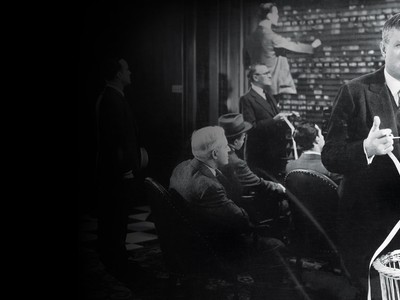He previously worked for Windsor Asset Management and Jupiter Asset Management before helping to found New Star. He joined CRUX Asset Management in June 2015. Here, Richard discusses how his approach to fund management can identify potential winners, whatever the wider economic situation.
Despite a weak euro, quantitative easing by the European Central Bank and low oil prices, European Union GDP growth has continued to be anaemic, rising only 0.3% sequentially in the third quarter of 2015. Further concerns over a Greek sovereign debt crisis dominated headlines over the summer and have recently been compounded by fears of a slowdown in China. As a result, European stock markets have given up some of the QE-driven gains of the first quarter and continue meaningfully to lag their US counterparts since the nadir of the Great Financial Crisis.
The CRUX European Special Situations Fund was launched in October 2009 and the investment philosophy has been consistent since then with an emphasis on four factors. First we look for high quality, cash-generative businesses typically with significant barriers to entry and strong competitive positions. Secondly we seek to partner with proven, competent management teams with aligned incentives and a sensible approach to capital allocation. Thirdly we favour well capitalised businesses with conservative balance sheets and lastly, we demand attractive valuations with a focus on levered and unlevered free cash flow yields.
While we are not ‘top-down’, thematic investors we have identified a number of areas in the European market which we believe offer an attractive risk-reward balance in the current economic climate.
While we are not ‘top-down’, thematic investors we have identified a number of areas in the European market which we believe offer an attractive risk-reward in the current economic climate.
One of these areas is acquisitive distribution businesses, of which two – DCC and Brenntag – are among our top 10 positions. The UK-listed energy distribution business, DCC, has consolidated the UK market over the last ten years, making investors roughly five times their money in the process, despite maintaining fairly conservative levels of net debt.
We are hopeful management can continue to execute this strategy. Brenntag, on the other hand, is a German chemicals distributor which benefits over time as large chemicals companies outsource the non-core distribution function, providing the potential of meaningful economies of scale. Brenntag’s management team also has a strong record of bolt-on acquisitions and recently completed two midsized acquisitions in the US. Brenntag trades on approximately 17 times next year’s earnings.
Another area we are invested in is businesses which benefit from a continuing trend for more stringent health and safety standards in a range of industries. This drives sales growth for the testing, inspection and certification (TIC) companies, such as SGS and Bureau Veritas, both core positions in the fund. The TIC space is also highly fragmented and there is an opportunity for the strong to get stronger by pursuing accretive bolt-on acquisitions of smaller peers. The recent disruption in the energy space following the oil price drop could make oil & gas testing an interesting area for the larger, more diversified players to invest into temporary weakness.
We have also found interesting opportunities in global champions benefiting from secular tailwinds whose stock prices are depressed for idiosyncratic reasons. One example is Zodiac Aerospace, a French company which is the market leader in aircraft seats and interiors. Zodiac is geared to the rise in global air travel and the increasing use of tailored interiors and seating, but has recently been a victim of its own success as it has struggled to meet demand for its seats. This has prompted several profit warnings from the company as it endeavoured to clear the backlog and it has fallen out of favour with investors. We believe that the market has unduly punished the business for temporarily poor execution as it is trading at around 17 times next year’s earnings.
Another company enjoying favourable business trends is Swiss-listed Sika, the largest construction specialty chemicals player. This is a gem of a business which enjoys very meaningful barriers to entry supported by an extensive intellectual property portfolio and is growing revenues in the high single digits, driven by rising global construction, increasing penetration of its products and market share gains. Sika is currently subject to a disputed hostile takeover by French construction giant Saint-Gobain, but we believe the valuation (around 15 times next year’s cash earnings) already prices in a worst case corporate governance outcome.
In conclusion, while the investment case for Europe might seem challenging, given the economic malaise in the EU, a bottom-up investment process can highlight many attractive businesses which are not reliant on a significant improvement in the macro picture or continuing loose monetary policy to drive shareholder returns.


